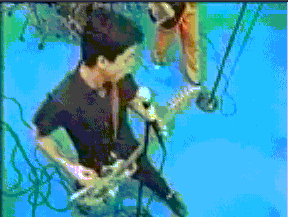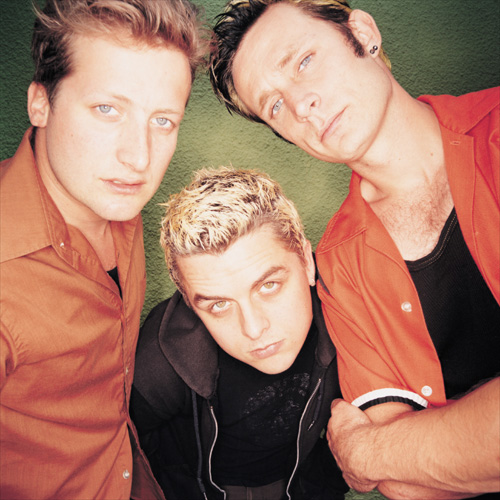|
|
|
The Story: Green Day was part of
the California punk scene. Childhood friends Billie Joe Armstrong (guitar,
vocals) and Mike Dirnt (bass; born Mike Pritchard) formed their first
band, Sweet Children, in Rodeo, California when they were 14 years old.
By 1989, the group had added drummer Al Sobrante and changed their name
to Green Day. That year, the band independently released their first
EP, 1,000 Hours, which was well-received in the punk scene. Soon, the
group had signed a contract with the local independent label, Lookout!
Records. 39/Smooth, Green Day's first album, was released later that
year. Shortly after its release, the band replaced Kiftmeyer with Tré
Cool (born Frank Edwin Wright, III); Tré Cool became the band's
permanent drummer. Green Day quickly followed Dookie with Insomniac in the fall of 1995; during the summer, they hit number one again on the modern rock charts with "J.A.R.," their contribution to the Angus soundtrack. Insomniac performed well initially, entering the US charts at number two, and selling over two million copies by the spring of 1996, yet none of its singles -- including the radio favorite "Brain Stew/Jaded" -- were as popular as those from Dookie. In the spring of 1996, Green Day abruptly cancelled a European tour, claiming exhaustion. Following the cancellation, the band spent the rest of the year resting and writing new material. The end result is what is called by many, the best album of their career, Nimrod.
|




